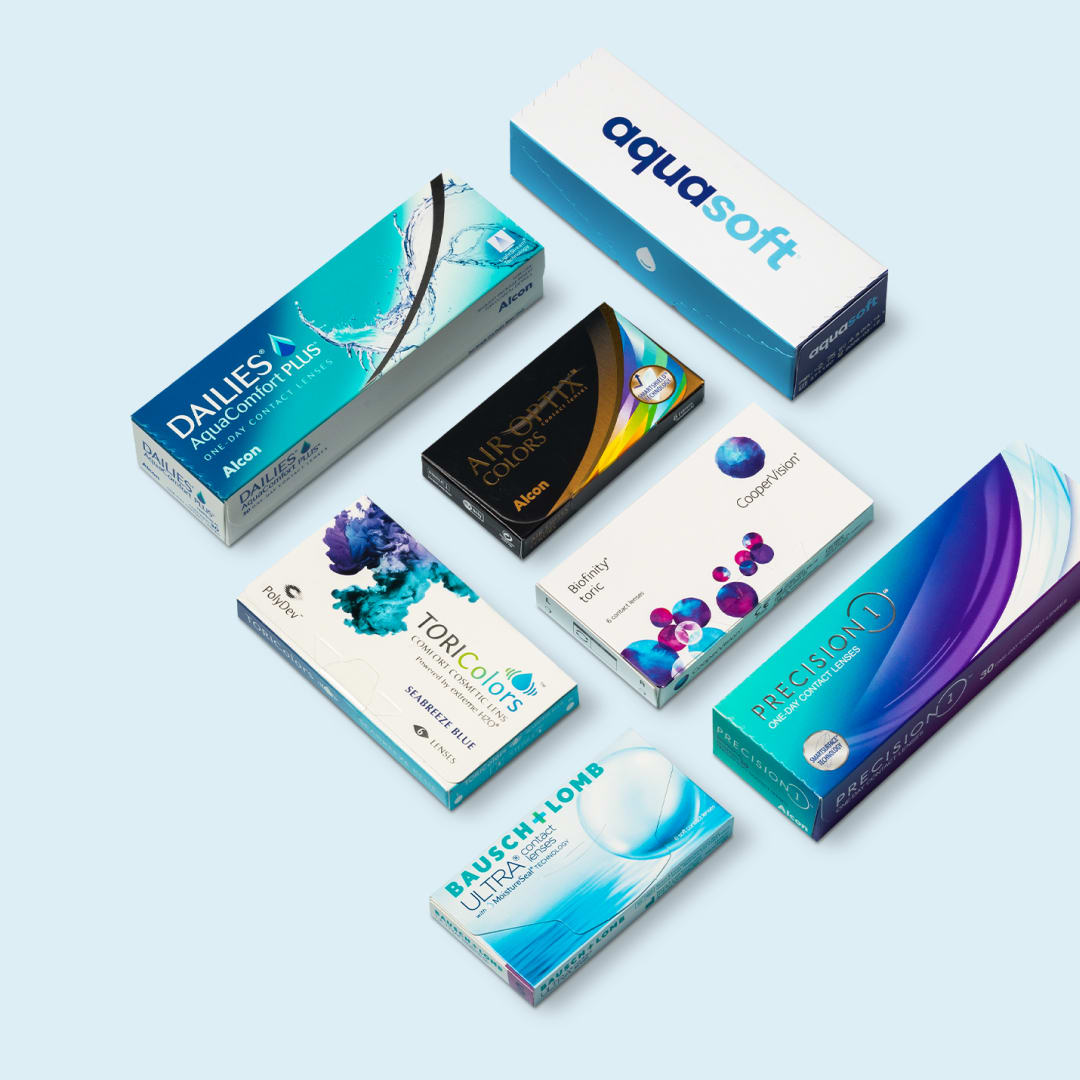Best contacts for allergies
Allergies can make it hard to wear contact lenses. Dry, itchy eyes are no fun, and some contact lenses can make things worse. The good news is you have options, so you don't have to just grin and bear it.
Understanding allergies and their impact on contact lenses
Allergies are basically caused by a malfunction of the immune system, where the body's defenses against viruses and other invaders just sort of fire off and make you feel sick due to pollen and other dumb things. This causes sneezing and coughing, runny nose, and dry, itchy eyes. Both dry and watery eyes get in the way of comfortable contact lens use, but you don't have to put up with bullying from your own immune system.
Allergies and contact lenses
Allergies can make contact lenses feel really uncomfortable. Eye irritation is one of the most common symptoms of an allergy attack, and the theory is that the immune system does this just to be a jerk. Rubbing your eyes only makes this worse, which is weird, because that's going to be your first impulse.
It's helpful to know what triggers your allergies if you're going to manage this issue. Some people are sensitive to dust, while others are especially triggered by pollen, mold, and pet dander. Some people are sensitive to all of these, while others get allergies for no obvious reason at all.

Order Contact Lenses Online
Learn how to order contact lenses online at 1-800 Contacts
Order contacts
The impact of allergies on contact lens comfort
All these symptoms make contacts feel like they're making the irritation worse, exacerbating the scratchy and irritating effects of the allergies. Old and worn-out contacts can make this more serious, which can be addressed by getting regular contact deliveries and keeping your set fresh (so, maybe don't keep your contacts in the sock drawer or the dryer's lint trap). The discomfort of allergies can make some people decide to go without wearing contacts altogether, which is not a good idea because you probably need contacts to see properly.
Choosing the best contacts for allergy sufferers
Contacts are not all created equal. Picking the set of lenses that works best for you can go a long way toward making wearing more comfortable with allergies (if you absolutely insist on having allergies, that is).
Lens materials and allergy-friendly options
Contact lenses can be made from a lot of different materials. As a rule, your best bet for dealing with allergies is to choose breathable lenses that allow some gas and fluid to cross through them. Scleral lenses cover the entire eye and partly trap a layer of tears against the eyes' surfaces, which helps them stay moist and comfortable, two words that rarely go together in other contexts. Daily disposable lenses are generally made from silicone hydrogel, which is highly permeable to oxygen and breathes like a crocheted jacket.
Managing allergies while wearing contacts
Choosing the right lenses is helpful, but you still have to manage your contacts well. Relatively simple measures, such as using eye drops and keeping your lenses clean, can limit the discomfort caused by allergies and contacts.
Recommended eye drops for allergy relief
Over-the-counter drops might help control the symptoms of allergies. Perhaps the simplest are the plain saline drops that lubricate and moisturize the eyes like artificial tears. Various agents can be added to artificial tears to improve the cleansing and moisturizing properties of the drops you're using. Talk with your eye care professional about stronger solutions or look into prescription eye drops (literally).
Proper lens hygiene and allergy prevention
Daily contacts are disposable, so they don't have to be cleaned, which is awesome if you're like us and don't like cleaning things. If you're reusing contacts, make sure you clean them frequently, and keep them in solution overnight. Clean lenses may not solve the allergy issue you're having, but they can reduce the irritation you feel.
Fighting allergies wearing contact lenses
A lot of this is a matter of trial and error. Shift between combinations of disposable and reusable lenses, drops, and eyeball hygiene until you find a routine that works for you. If allergies are a real issue for you with your contacts, find an eye care professional near you for personalized advice.
FAQs
Can I switch to daily disposable lenses to minimize allergy-related discomfort?
While switching out your contact lenses isn't likely to change your allergy issues, daily disposable lenses can help out with some of the discomfort you're feeling. Always make sure your lenses are fresh, not expired, and clean.
Can allergies lead to more serious eye conditions for contact lens wearers?
It's not likely that you'll get a serious disease or other health condition from wearing contacts during an allergy episode, but it can lead to some issues. Excessive scratching and irritation, for example, could cause harmful rubbing and even small scratches on the sensitive parts of the eye.
Should I avoid wearing contacts if my allergies are particularly severe?
You should never force yourself to wear contacts if it's overly uncomfortable. If your allergies are making wearing contacts difficult or painful, it might be best to remove them for a while and let yourself recover before putting them back in.





